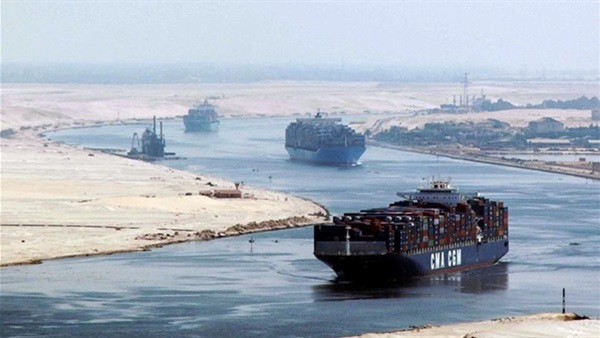His Excellency Sultan Ahmed Bin Sulayem, Chairman of DP World and Chairman of Ports Customs and Free Zone Cooperation in Dubai said that the opening of the new Suez Canal would bring much-needed growth to Egypt’s economy. “If there’s something that Egypt needs it is growth – this will definitely bring growth to Egypt,” he said. “We were very surprised [by the speed at which the canal was completed] but that I think shows the determination of the government in Egypt, the new government, that they mean business and that they were able to move that fast. That is also a positive sign for investors in Egypt that this new government means business and this is good news for us too.”
His Excellency Bin Sulayem added in an interview with Bloomberg, a US-based international business news TV channel: “Until the expansion of the Suez Canal they have not had two-way traffic in the waterway. The expansion will now allow two-way traffic which means the vessels will be able to travel six hours faster. This will translate into tens of thousands of dollars of savings per sailing, which is a lot, and this will create the opportunity to build more ports and will encourage Public Private Partnership (PPP) investments… They expect in Egypt by 2023 the number of vessels will double so this is good news for world trade definitely.
“The number of vessels will increase, whether that’s going to double [as per the forecasts] remains to be seen. Bear in mind the Canal connects West to East and vice versa. Everyone who is taking cargo from Europe, even the United States, will pass through the Canal, and so the limited access through the canal costs ship owners a lot by not being able to travel faster."

Speaking about the slump in global shipping industry and how does it link with the collapse in energy prices compared to the demand for global shipping, Bin Sulayem remarked that: “There are many factors that caused the slump in freight rates. One of them is that energy costs are lower. Another is that all the major shipping lines have introduced the mega vessels, 18,000 container ships and now they’re working on 20,000 container vessels, retiring the 7,000-10,000 vessels which will be bought by the small liners. So you have more capacity in the market. But I believe eventually it will be absorbed. The market for the shipping industry is cyclical, rises and falls. Now it is down but I think it will not take long to rise."
On the business opportunities that would brought about by the nuclear agreement the world powers have reached with the Islamic Republic of Iran and what role will Iran play after the agreement, His Excellency Sultan Ahmed bi Sulayem said: “Iran was a main trading partner with the UAE before the sanctions. Major products would be required to come from the UAE for Iran due to the availability and abundance of trade through the UAE… Interestingly I was in Iran about three weeks ago before this historic agreement about the sanctions was announced. We were particularly interested in looking at the ports in Iran, as we are managing the Port of Aktau working with the Government of Kazakhstan to cater to the needs of maritime shipping in this region. The Chinese are interested in bringing cargo in containers by rail across to Europe. Today transit time for cargo from China to Europe is 42 days - using the vast rail network across the Silk Route will take 12-14 days. The first train arrived in Rotterdam from China around 3-4 weeks ago carrying 80 containers. This is very interesting for us. So my visit was to see the preparation of the ports in Iran for the rail, connecting them to the rail network.”
He concluded the interview in a good note saying: “I think it will be a big opportunity for the region when sanctions are lifted, not just for the UAE but for many Western companies that were prevented benefitting from the development in Iran - today they will be able to participate.”